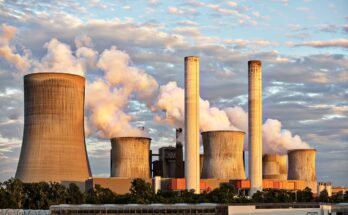The environment refers to the natural world that gives us air, water, land, plants, and animals. The environment provides us with everything we need for life: we breathe air in healthy environments, drink water, and consume food. The environment also contains resources for building homes and communities. Because we see air, water, land; plants, animals, and humans as separate elements, we do not think about the impact of human activity on the environment and, therefore, the environmental consequences of that activity.
The significance of the environment
The environment makes life possible for all beings. Healthy forests are essential to oxygen production, stable climates are essential to healthy oceans, and healthy soil is essential to food production. Healthy ecosystems can offer protection from disasters, such as floods, and droughts via means of nature. Environmental degradation has increased the risk of extreme disasters.In short, diminished ecosystems jeopardize all other systems by creating artificial food shortages, less access to water, extreme weather and so on.
Most significant environmental issues
We have today perhaps some of the most significant issues on our planet:
- Climate Change – The Earth’s climate is changing due to climate-changing greenhouse gas emissions from burning fossil fuels. Climate change is resulting in rising temperatures, melting ice caps, and greater frequency and severity of natural disasters.
- Pollution – Pollution from the air, water, and soil is making us sick and causing harm to wildlife. Plastic pollution is a unique challenge, and it has become a global crisis. (It’s especially bad in oceans)
- Deforestation – Forests are being cut around the globe to make room for agriculture, logging, and urban development. Deforestation destroys habitats for animals, and it lowers the amount of carbon that can be absorbed from the atmosphere.
- Loss of Biodiversity – Many animal and plants are in danger due to loss of habitat, pollution, and climate change.
- Overpopulation and Overconsumption – Human demand for natural resources is greater than Earth’s ability to renew them.
What Can We Do
Protecting the environment is a collective responsibility. Here are some areas where we can help:
- Reduce, Reuse, Recycle – Reducing waste aids to conserve our natural resources and energy.
- Use renewable energy – Using alternatives like wind, solar, and hydroelectric instead of fossil fuel powered energy are clean alternatives.
- Protect wildlife – Protecting wildlife can help keep biodiversity intact.
- Water and energy conservation – Examples of conserving energy and water: turning off lights, fixing leaks, etc – it all helps.
- Educate and advocate – We need to inform the general public about what is happening to our environment, and support policies that protect the environment; this can create a long-term change.
Call to action
The environment isn’t just important to scientists or governments, it’s important to everyone. Every person’s action, no matter how small, can help the planet become healthier. By living sustainably and helping others live sustainably, we can create our planet and world to be a safe place for the future generations to inherit.



